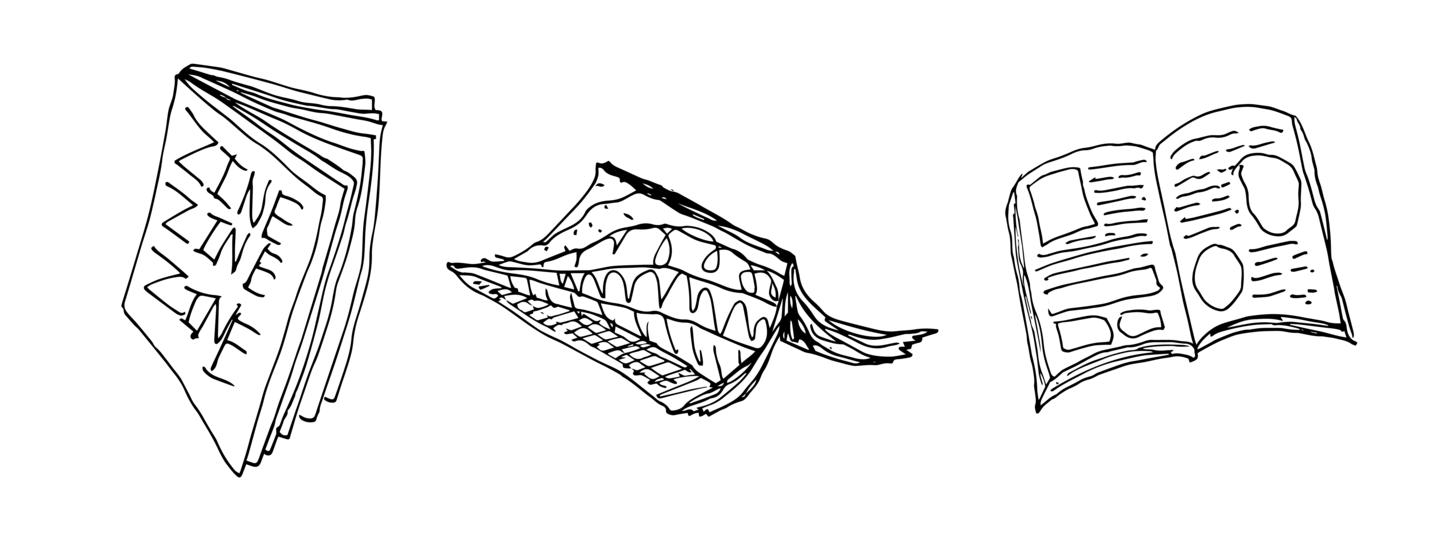Entirely cognizant of the fact that artists must be paid for their work, we’re offering prizes for the best submissions in nonfiction, fiction, poetry, and visual art. First place for nonfiction and fiction is $200; first place for poetry and visual art is $100. Second place for each category is $50.
The Cascade’s “The Zine” is an idea that’s been tossed around for some time now. What it’ll take form as is a tri-annual, semester-end edition of The Cascade’s regular weekly paper, featuring UFV students’ short stories, graphic designs, non-academic essays, literary nonfiction, poetry, photography, drawings, and paintings.
Let me tell you another thing: we’re excited.
With submissions soon to start rolling in, I want to comment on what The Cascade hopes to get out of this new experience.
The Zine will not attempt to be a literary magazine so much as a curation of works that acknowledge our mandate to be an alternative news source for the Fraser Valley as well as to publish opinions and commentary from UFV students that would otherwise not find a place in a regular edition of The Cascade.
The Zine won’t have a particular theme, although I hope themes emerge organically as artwork and commentary from a similar place are positioned next to each other in print.
Works should be aware but not necessarily self-referential of the place from which they originate. Some questions The Cascade has for local artists are: Where are you? What does it mean to create in this time and place? What conceptual, ideological, physical, and metaphysical boundaries exist here?
What does it mean to reside in a place and what are the unique experiences and perspectives that may be derived from interacting with the local as a generation that increasingly engages in global conversations?
Henry David Thoreau writes in Walden about not needing to travel overseas, as so many of his contemporaries do, but that there are near endless opportunities for discovery in our own backyard.
The Cascade believes that a writer, a painter, a citizen has an obligation to practice mindfulness with regards to being a part of an environment. That is, the observable environment, interacted with on a daily basis, and not the idyllic, mythological conception of The Environment.
In your writing endeavours, also remember George Orwell’s “Politics and the English Language.” Your obligation is to accuracy, and nothing more. Consider Lew Welsh: “I never worry about beauty, if it is accurate there is always beauty.”
Visual artists should consider what purpose (ordinarily) a newspaper would have with visual arts. How do we communicate through images and symbols? It might be worth considering the history of “zines” and “pulp” art. Right up to their relevance in what could perhaps be described as an intensely competitive visual environment. Consider the tradition of providing cultural commentary as visual representation.
Think about the “collective shudder” of distaste for Pop Art, and acceptance of Minimalism among the intelligentsia versus the opposite among the popular masses, as posited by Anna C. Chave in “Minimalism and the Rhetoric of Power.” Do similar taste-defining dialectics among the classes exist here in the Fraser Valley?
Of course, we will readily consider all works from all UFV students, regardless of focus. If it’s good, it’s good. By no means should a submission be bludgeoned of its life force and haphazardly crammed into feigned intent. Be concrete, be sincere. The privilege of a university education requires that those who receive it should comment on and share their experiences; they should take their unique combination of experiences and feel worthy to say something about it.
On this end, we are excited to hear what it is that you have to say.
Submissions are due Oct. 31 at midnight. We look forward to enjoying your work.
Guidelines and submission information are available here.
Image: Caleb Campbell/The Cascade


